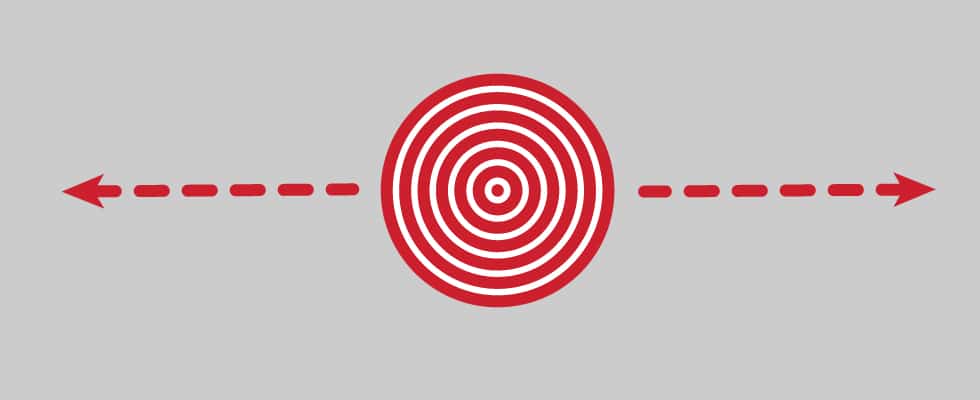These two common mistakes put creditors in legal hot water
More consumers are filing complaints with the Consumer Financial Protection Bureau (CFPB) due to debt collection practices. The number one reason, by a large margin (43% of the total in November 2014), is continued attempts to collect debt that isn’t owed. While many complaints are the result of the behavior of overly eager collectors, a lot of mistakes start with the original creditor. Old systems, bad reports and a sloppy debt sale process lead to balances being reported as unpaid, both to collection agencies and to credit bureaus. The CFPB has its eye on this problem, and collectors must be aware of its prevalence, since it leads to unnecessary disputes and hurts customers. (more…)
In today’s regulatory environment, debt collection compliance is a moving target
The CFPB published its Advance Notice of Proposed Rule-making for the Debt Collection industry back in 2013. The actual rule is expected around April of 2015, and the industry is worried about the changes it will introduce. The rule is expected to add more consumer disclosures, more data integrity in the collection process, as well as other limitations on contacting consumers. Furthermore, the CFPB is planning to apply its debt collection oversight mandate to first party debt collectors, those who collect for themselves or a parent company. Debt collection compliance is about to experience a huge shift. (more…)
Is the number of collection lawsuits the right KPI for the industry?
Both the ACA and Credit and Collection Risk today shared numbers from the latest WebRecon report about debt collection litigation and CFPB complaints. The report and the response to it demonstrate how the debt collection industry works. Almost no collection agency will tell you how it works to recover debt. Sometimes because its clients don't care - or don't want to know - as long as they don't get in trouble or get sued. With this mindset, it's no wonder that agencies are almost giddy about this or that type of lawsuit declining to an all time low. Since no other performance metric is shared, CFPB complaints and lawsuits become the number every company optimizes for - since only what gets measured, gets noticed. (more…)
What’s the Problem with Quotas for Debt Collectors?
Nearly 80,000 consumer debt collection complaints have been submitted to the Consumer Financial Protection Bureau (CFPB) since the complaints database has been established. Of these complaints, more than half involve relentless or excessively aggressive communication tactics, false statements, or threatening actions. With companies more focused than ever on fine-tuning every aspect of their CRM process, it’s troubling that there is still a place for collectors who use bully tactics and who flagrantly violate consumer protection laws in the industry. (more…)
A Reactive HTTP Reverse Proxy in Play!
At TrueAccord, we use Play to develop our backend. Given our development environment, we need to have part of our URL space routed to a different server written in Python. We initially thought of setting up a lightweight HTTP server like nginx that would act as a reverse proxy for both of our development servers, which is a reasonable solution. However, we also wanted to avoid having yet another moving part in our development environment and were curious if we could write something quick in Scala that could achieve this. As it turns out, writing this little reverse proxy in Scala/Play is relatively straightforward. It’s also pretty impressive that with so few lines of code we get a reactive proxy server that streams the content continuously to the end client while chunks of it are still arriving from the upstream server. A more traditional (and time-intensive) implementation would have buffered the entire upstream response until it was complete and only then sent it to the client.. So, without further ado, here is the code: [gist id="20e1711b406ffab6495d"] In line 14, proxyRequest.stream returns a Future[(WSResponseHeaders, Enumerator[Array[Byte]])]. This means that at some point in the future, our closure at line 15 will get called and will be supplied two things: the headers returned from the upsteam server (WSResponseHeaders) and an Enumerator[Array[Byte]], which is a producer of arrays of bytes. Each array of byte that it will produce is a part of the response body from the upstream server. Conveniently, Play provides a Result constructor that takes producers like this and turns them into responses that can be served to the end client. flattenMultiMap is a little helper function that converts the query string parameters from the collection type they are given by Play requests to the format expected by WS.url. Pretty cool, eh?
Top 3 reasons you lose engaged customers
It’s natural to blame your customers for not paying, but before you accuse them of bad behavior, make sure your own house is in order. Rule number one in algorithmic recovery is to approach debtors from a CRM perspective as opposed to a disciplinary one. With this strategy, it’s far more likely you’ll get customers back on regularly paying terms for the long run. (more…)
On the fence about TrueAccord? Check out our success with Elance-oDesk.
It’s easy to sum up our success with Elance-oDesk: for every $1 of debt we recovered, they have seen more than $2 of additional, post-recovery payments from these customers. These are pretty compelling numbers. For perspective, let’s rewind. Elance-oDesk is one of the world’s largest online workplaces. More than 2.5M businesses and more than 8M freelancers converge on www.elance.com and www.odesk.com to work together via the Internet. By the end 2014, the merged companies expect to see more than $900 million in billings. However, before TrueAccord, many of those billings had gone awry. (more…)
How Skilled Debt Collection can increase your NPS
If you’re a marketing or customer service manager at a large bank, your success is likely tied to increasing your institution’s Net Promoter Score. You’re probably also familiar with the paradoxical task of collecting debt without sacrificing promoters. The age of big data has a solution for that. With the right collections partner, you can improve customers’ attitudes not just about the late bill at hand, but about their overall experience of the brand itself. How is this possible? For starters, it’s an essential evolution in the financial industry. According to Satmetrix, credit card providers face a particularly onerous challenge in debt collection because it typically takes six or more years before any one customer becomes profitable. In their attempt to maximize customer spending and tenure, lenders must innovate in the realm of debt repayment. If satisfaction is the fundamental NPS driver, it stands to reason the most valuable innovations in customer service will focus on turning critics into advocates. Finding disgruntled customers is easy. Many of them are refusing to pay their bills. At TrueAccord, we’ve found that winning back these types of customers can create some of your strongest advocates. Recover relationships, not just sums. TrueAccord’s proactive loss management system uses enterprise-grade analytics to personalize our approach to individuals – to connect with them as humans – in a way that not only gets you paid but wins you fans. We accomplish this by looking at root causes of delinquency rather than the past-due balance itself. We segment customers based on how they perform both before and after we point out their tardiness. And we know how and when to follow up. Take it from one of our best testimonials: “This has to be the funniest bill collection I have ever received and it actually made me want to pay.” The creditor in question could have written off this customer. Instead, we created a promoter. We’ve also found that in addition to driving an organization’s NPS, TrueAccord’s debt collection methods can increase a company’s overall revenue. Our customers see more than $2 in additional business for every $1 paid per late payer we retained for them. Bring it home. A seminal Bain survey of more than 89,000 customers of various types of US banks found that promoters stay longer with their institutions, buy more products, refer more new customers and cost less to serve. The study also found that among affluent US customers, a promoter is worth $9,500 more than a detractor over the tenure of that customer relationship. Of particular note, direct banks enjoy drastically higher NPS than national branch networks based on recommendations from friends, colleagues and family members. At TrueAccord, we can make your customers feel like they’re dealing with their local banker down the street. And as history suggests, communities promote from within.
Behavioral economics in debt collection: a webinar
Ever wondered why people make the choices they make, and how you can help them make other choices? Ever wondered whether talking or writing differently can help you get paid more, and more often? If so, you should attend our webinar about behavioral economics in debt collection. We'll go over customer psychology, influence mechanisms and how to tap into them. Click here to sign up!
How to Identify and Cultivate the Ideal AR Professional
Your accounts receivable team stands between you and your cash. That’s too much power to be taken lightly. To successfully carry out their duties, AR professionals require immense insight and finesse. They’re not just enforcers; they’re part of your CRM team. And if they’re not properly informed, they can cause lapses in compliance that can imperil your business far more than a few late payments – especially if you’re an SMB. Here are the top three qualities to look for in an effective AR professional: They are respectful toward customers. First off, it’s critical you hire someone who will approach your customers with respect. In fact, an unskilled AR person was our catalyst in founding TrueAccord. Rude bill collectors might get one bill paid, but you’ve probably lost that customer for good. There is a demonstrated economic upside to retaining even the customers who don’t pay on time. It’s also worth pointing out that cash is not the only form of currency you can receive. AR people are also in a position to uncover strong customer insights that can enhance the brand experience for everyone. Sometimes it’s not the talking, but the listening, that drives your bottom line. They know the applicable laws. Compliance with debt collection laws requires ongoing legal counsel. Without access to and supervision from lawyers, your AR person not only can derail individual payments, they can expose your company to debilitating fines. There are also missteps in etiquette that can have an equally devastating effect on the status of payment, such as contacting customers at the wrong time of day or via the wrong medium. For example, Thursdays and Fridays are the best days to capture and hold attention and email has a surprisingly lower open and response rate than direct mail. They are entrepreneurial in spirit. The ideal AR professional should be able to think holistically about your business. They should understand your overall goals and be familiar with fundamental business principles, such as the relative ease in retaining versus winning a customer. Most importantly, they think of themselves as brand ambassadors from the moment they send the first invoice until receipt of final payment. Check out our short e-book on the topic. All of that said, there are some situations too big for a single AR person or even an AR team to handle. Scouring the web for AR best practices is not always enough for SMBs to effectively leverage what is often one of their largest liquid assets. TrueAccord specializes in advanced methods of collecting debt and can step in at any time with proven methods to dissolve an impasse.
Get started right now.
Whatever your organization’s technical needs, we have the tools and experts to onboard you today.
Get Started



